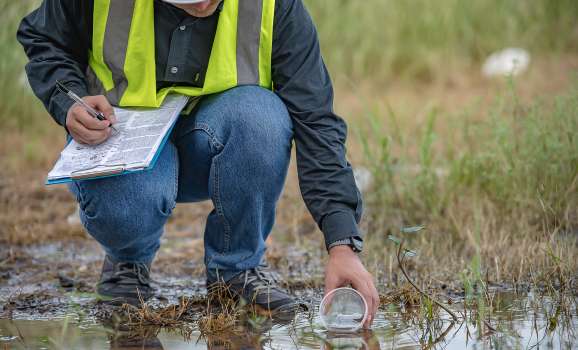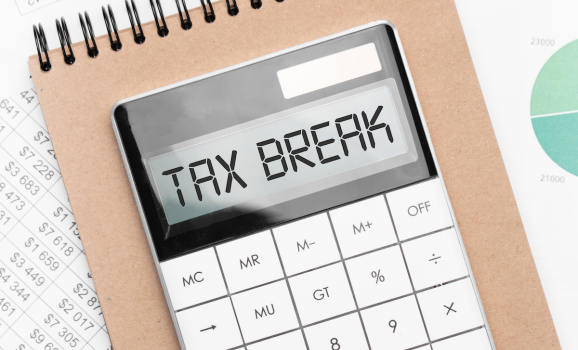Could a GA Home Water Filter System Save Money on Your Taxes?
Investing in a water filtration system is an intelligent choice for a homeowner. In North Georgia, the water contamination levels are alarming, with many pollutants such as lead, sediment, and chlorine entering our drinking water. Not only does a home system water filter for your GA home provide long-term solutions for clean drinking water, but it can also be a tax-deductible renovation.
Why Clean Drinking Water is Critical in Georgia Homes?
Clean drinking water is essential for the health and well-being of Georgia households. With increasing concerns about contaminants like PFAS and hard water minerals, having a reliable water filtration system is more important than ever. A home water filtration system helps remove harmful substances, improving both the taste and safety of your water. Investing in a water filtration system for your home ensures that your water is clean and filtered. Metro Water Filter offers advanced whole house water filtration systems tailored to meet the specific water quality needs of Georgia homes.
Benefits of a Water Filtration System For Your GA Home
A water filtration system is a solid investment for any homeowner. The benefits of having a water filtration system are significant, including:
-
- Improved Taste and Odor: A water filtration system removes the impurities and contaminants that cause bad taste and odor in water. With a filtration system, you can enjoy clean, fresh-tasting water every time.
- Protection Against Harmful Contaminants: Georgia has some of the highest contamination rates in the country, with 111 counties listed as vulnerable to PFAS contamination. A water filtration system protects your family or employees against harmful contaminants like lead, mercury, chlorine, and pesticides.
- Cost-Effective: A water filtration system can significantly reduce the cost of purchasing bottled water or relying on expensive chemical treatments.
- Environmental Benefits: Using a water filtration system reduces the amount of plastic waste generated from single-use water bottles.
Georgia Water Contamination Statistics
 According to the Environmental Working Group’s latest 2025 data, 9,323 sites across the United States now show detectable PFAS contamination, with Georgia being among the most heavily affected states. The EPA’s own testing reveals that 112 public water systems in Georgia have tested positive for PFAS. PFAS is a toxic chemical in many industrial and consumer products, including firefighting foam, non-stick cookware, and stain-resistant fabrics.
According to the Environmental Working Group’s latest 2025 data, 9,323 sites across the United States now show detectable PFAS contamination, with Georgia being among the most heavily affected states. The EPA’s own testing reveals that 112 public water systems in Georgia have tested positive for PFAS. PFAS is a toxic chemical in many industrial and consumer products, including firefighting foam, non-stick cookware, and stain-resistant fabrics.
The recent Environmental Protection Agency (EPA) findings show that certain Georgia counties face contamination levels that are staggering: Clayton County at 500% over EPA’s minimum reporting levels, the Augusta area at 1,606.7% and Calhoun with levels exceeding 9,500% higher than safe standards. Even the Atlanta metropolitan area shows pollutant levels 66% greater than EPA minimum reporting standards.
Is a Water Filtration System Eligible for Tax Deductions?
Installing a home water filtration system in your Georgia home may offer potential tax advantages, though a home water filtration system tax deductible depends largely on specific circumstances. While most personal installations of a water filtration system for a home don’t qualify as an immediate tax write off, they can be considered a capital improvement, potentially lowering your capital gains tax when you sell your house. In cases where the system is prescribed for medical reasons, or used for a home-based business, some or all of the cost may qualify as a water filter tax deductible or even yield a tax credit for the water filtration system. It’s important to note that standard water filtration systems do not qualify for federal energy efficiency tax credits, unlike certain heat pump water heaters, electric or natural gas heat pumps, and biomass stoves/boilers may receive up to $2,000 in annual credits.
Tax Deductible Renovations for Homes
 Investing in a water filtration system can also be a tax-deductible renovation for homeowners. The IRS considers water filtration systems a home improvement project that adds value to your property. As a result, you may be eligible for tax benefits, including:
Investing in a water filtration system can also be a tax-deductible renovation for homeowners. The IRS considers water filtration systems a home improvement project that adds value to your property. As a result, you may be eligible for tax benefits, including:
While standard water filtration systems do not qualify for federal energy efficiency tax credits, homeowners who install qualifying heat pump water heaters as part of their water treatment solution may be eligible for a 30% tax credit up to $2,000 annually through 2032.
When seeking tax benefits for your water filtration system, it is important to consult with a tax advisor or accountant to ensure you meet the IRS requirements.
Steps to Claim Tax Benefits for Home Water Filtration System
- Determine your qualification path
- Document Medical Necessity (if applicable)
- Maintain Comprehensive Records
- Classify The Tax Benefit Type
- Understand Energy Credit Limitations
- Use Appropriate Tax Forms
- Consult a Tax Professional
To better understand your potential savings, it can also help to review the whole house water filtration cost and how it factors into your long-term budget and tax planning.
What to Do If You Don’t Qualify for a Tax Deduction?
- Use HSA/FSA funds if medically eligible
- Check for state or local rebates
- Look into utility company incentives
- Count it as a capital improvement
- Save receipts for future tax changes
- Benefit from long-term health savings
- Ask about related deductible expenses
- Explore cost-sharing options
- Recheck eligibility each tax year
Tax-Related FAQS:
Does a water softener qualify for energy credit?
No, water softeners do not qualify for federal energy efficiency tax credits.
Can you write off a water filtration system for a business?
Yes, if used primarily for business purposes, it may qualify as a business expense. The portion used for business can typically be deducted, while personal use portions cannot.
Is a water filtration system a capital improvement?
Yes, whole-house water filtration systems typically qualify as capital improvements because they add value to the property and extend its useful life.
Is a water filter HSA eligible?
Yes, if recommended by a healthcare provider for a specific medical condition and you have written documentation.
Does a water filtration system add value to a home?
Yes, especially whole-house systems that improve water quality and plumbing longevity.
How much does a whole-house water filter cost?
Whole-home water filters typically cost between $1,000 and $4,000 for the system and professional installation, depending on home size, water quality issues, and filtration technology. Advanced systems with multiple stages may cost more.
Metro Water Filter of The South, Your GA Home System Water Filter Specialists Want Your Water To Be Clear and Healthy
Investing in a water filtration system for your home is a wise decision. The benefits are immeasurable, and the potential tax benefits make it a wise financial investment.
At Metro Water Filter of the South, the GA-chosen home system water filter professionals, we are dedicated to providing quality water filtration services to homeowners and commercial building owners in North Georgia. Our goal is for every person to have safe, clean drinking water.



